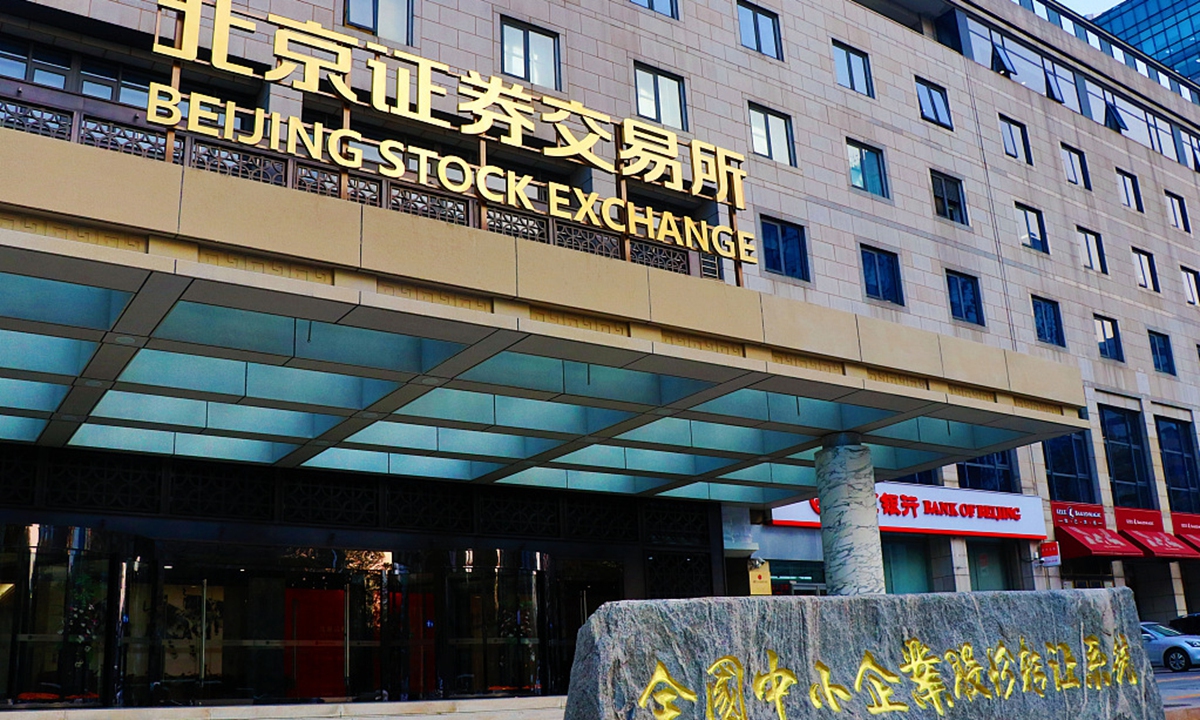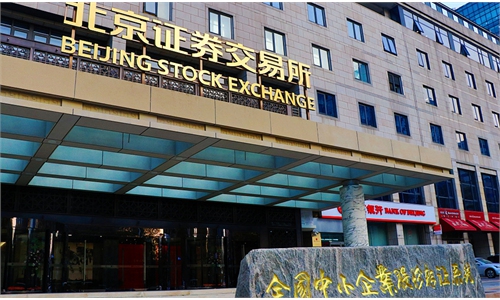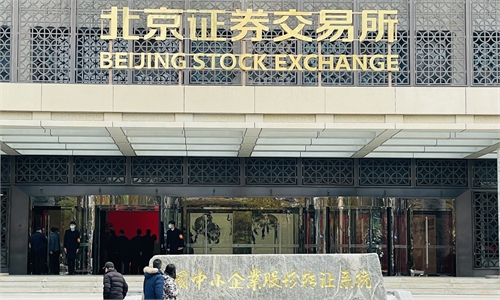Beijing bourse launches margin trading, securities lending to achieve higher liquidity

Beijing Stock Exchange. Photo: CFP
The Beijing Stock Exchange (BSE) launched margin trading and securities lending transactions on Monday, which experts said will inject liquidity into the market and provide a better platform for the fundraising and development of small and medium-sized high-tech firms.Eligible securities firms, entrusted by investors, were allowed to submit declarations for margin trading and securities lending transactions to the BSE as of Monday.
The launch of the activities is an important step to improve the BSE's trading system as well as the pricing function of the secondary market, said the bourse.
A total of 66 securities firms including China International Capital Corp, Haitong Securities and Essence Securities have obtained the right to do the business. Meanwhile, 56 BSE-listed companies are involved, including Beijing Northland Biotechnology Co, Sino IC Technology Co and BTR New Material Group Co, according to media reports.
Through margin lending, investors can load up on cheap debt to buy stocks so as to enlarge their profits when they expect stock prices to rise, whereas securities lending is important for short selling, in which investors borrow securities to immediately sell them and they buy them back at a lower price, according to industry insiders.
"Margin trading and securities lending transactions have been conducted on both the Shanghai and Shenzhen stock exchanges for 12 years and have achieved good results. The introduction of the practices to the BSE will increase market volatility and pricing efficiency," Dong Dengxin, director of the Finance and Securities Institute of the Wuhan University of Science and Technology, told the Global Times on Monday.
The BSE has stepped up efforts to improve market functions. The bourse launched its first market index - the BSE 50 - in November. It also unveiled draft rules on introducing market makers to reduce transaction cost. The bourse halved the commissions it charges for stock trading to 0.025 percent of the transaction value from December.
As of February 10, a total of 169 companies were listed at the Beijing bourse, with a combined market value of 240 billion yuan ($35.36 billion).
"As an important part of the country's multi-dimensional capital markets, there will be great potential and remarkable policy dividends for the development of the BSE," said Yang Delong, chief economist at Shenzhen-based First Seafront Fund Management Co.
The exchange is set to play a larger role in supporting the development of the new economy, according to Yang.
China recently unveiled draft rules for the rollout of the registration-based IPO system across the domestic stock market, a major leap forward in the reform of one of the world's biggest capital markets.
The system is expected to help new economy firms obtain financing from the capital market, and enhance the role of the capital market in promoting high-quality development and economic structural transformation.
Dong said the BSE should make greater reforms in accelerating capacity expansion by allowing the transfer of more firms from the National Equities Exchange and Quotations, also known as the "new third board."
On Monday, the BSE 50 rose by 1.55 percent to 1,052.22. So far this year, the index has risen by 11.69 percent.
Along with sound stock performances, large volumes of foreign capital continue to flow into the A-share markets. In January, the amount of northbound capital reached a single-month record high of 141.2 billion yuan.
Yang projected that more than 300 billion yuan worth of foreign capital inflows can be expected for the whole year of 2023, as Chinese stock markets are more attractive globally thanks to the swift economic recovery.


